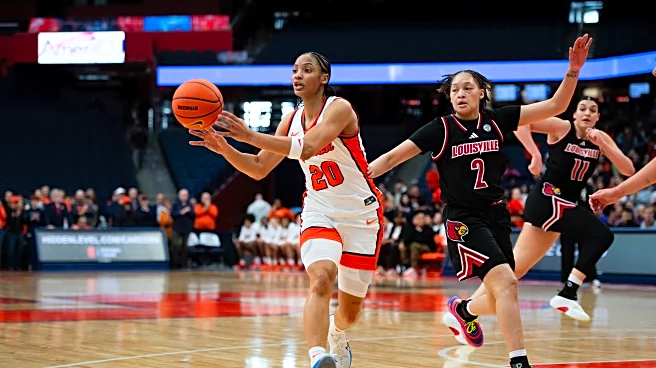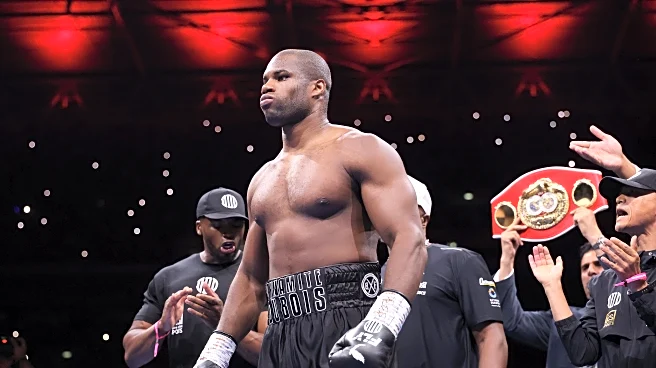What is the story about?
What's Happening?
The National Association of Broadcasters (NAB) has formally requested the Federal Communications Commission (FCC) to abolish the national TV ownership rule, which currently caps ownership at 39%. This request follows Nexstar's announcement of its intention to acquire Tegna, a move that would be prohibited under the existing rule. NAB argues that the rule is outdated and prevents local stations from competing with global tech and streaming giants like Google, Amazon, and Netflix, which do not face similar restrictions. FCC Chairman Brendan Carr has previously called for reforms to these 'arcane artificial limits' on TV station ownership. However, the proposal has faced opposition from figures such as Senator Elizabeth Warren, who argues that such mergers could lead to reduced competition and higher prices for consumers.
Why It's Important?
The push to abolish the national TV ownership rule is significant as it highlights the ongoing tension between traditional media companies and new digital platforms. By removing the cap, broadcasters argue they could achieve the scale necessary to compete with tech giants, potentially leading to more robust local journalism and public safety information. However, critics warn that this could lead to media consolidation, reducing diversity in news sources and potentially increasing costs for consumers. The outcome of this debate could have far-reaching implications for the media landscape, affecting how Americans access news and entertainment.
What's Next?
The FCC will need to consider the NAB's request and the broader implications of changing the ownership rules. This decision will likely involve input from various stakeholders, including media companies, consumer advocacy groups, and policymakers. The outcome could set a precedent for how media ownership is regulated in the digital age, balancing the need for competition with the risks of media consolidation.
Beyond the Headlines
The debate over the national TV ownership rule also touches on broader issues of media influence and control. As media companies seek to expand their reach, questions about the concentration of media power and its impact on democracy and public discourse become increasingly relevant. The decision could also influence how other regulatory bodies approach similar issues in different sectors.















